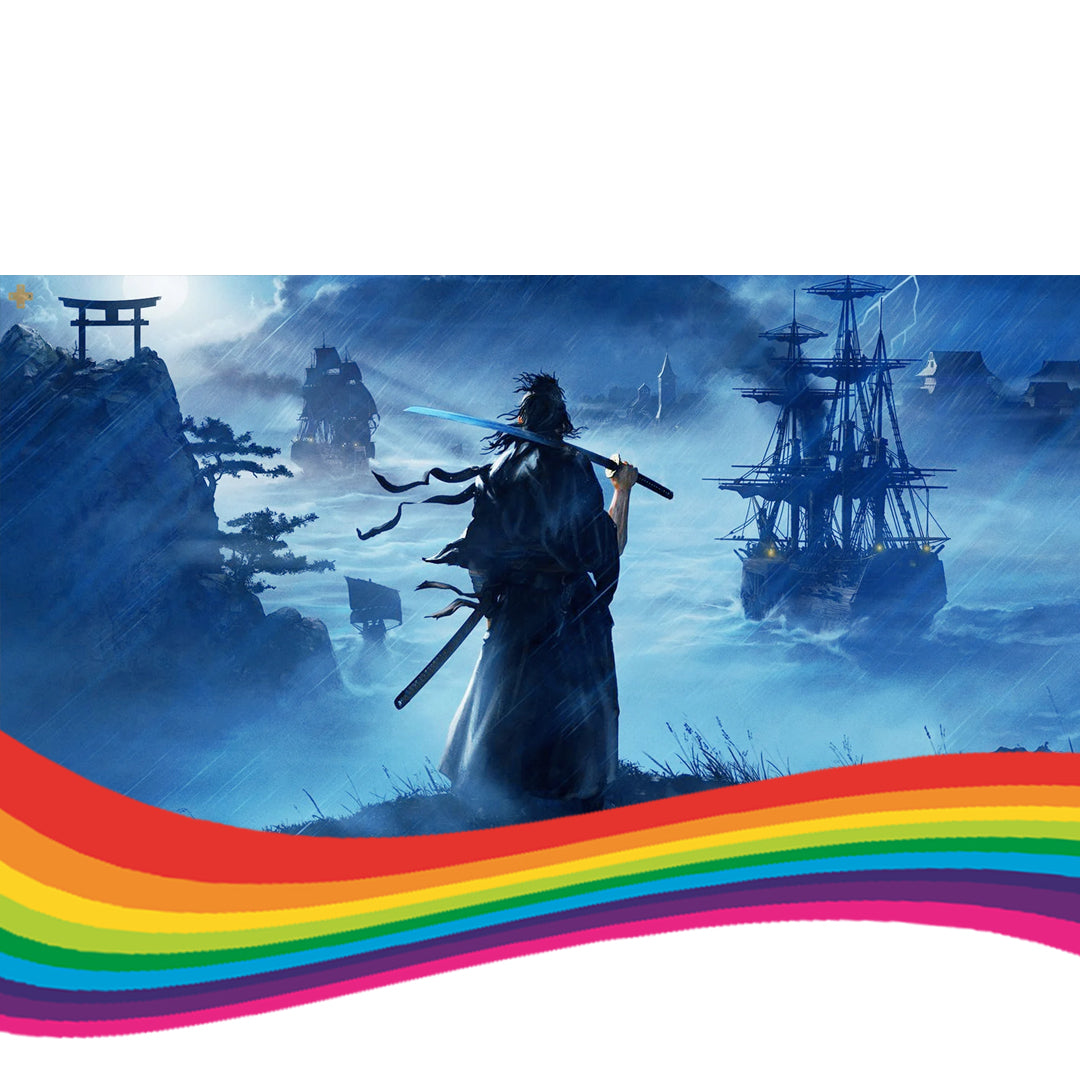
5 Of Our Favourite Historical Open-World Games
Today marks the release of a much-anticipated katana (and controller)-wielding return to old-timey Japan. Rise of the Rōnin is an open-world game taking place in Japan’s late Edo period during the mid-19th century and is by Team Ninja, known for the similarly themed Ninja Gaiden franchise and Nioh. The interest and desire to consume ancient and mid-century Japanese historical content has always been apparent in Western culture and experienced a renewed boom (or hack-and-slash) with 2020’s Ghost of Tsushima by Sucker Punch. We’re excited to see how Rise of the Rōnin plays and where it sits with the best of ’em.
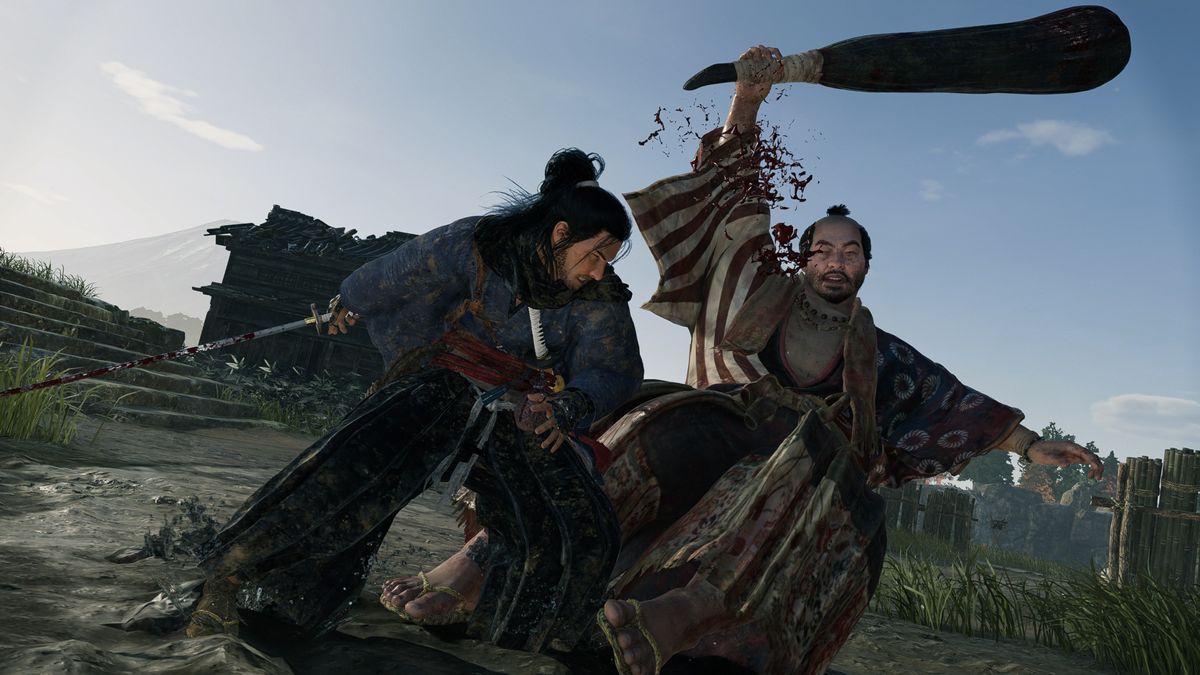
Whether you end up liking it or not, one aspect that’ll always be fun in games is an open world. I mean come on- the ability to go anywhere and everywhere you want, meet interesting characters, carry out side missions, and take part in short stories to aid your larger quest for greatness is riveting. In the spirit of that, and sticking with the historical theme, let’s look at 5 of the best historical open-world games that have ever graced our consoles.
Ghost of Tsushima
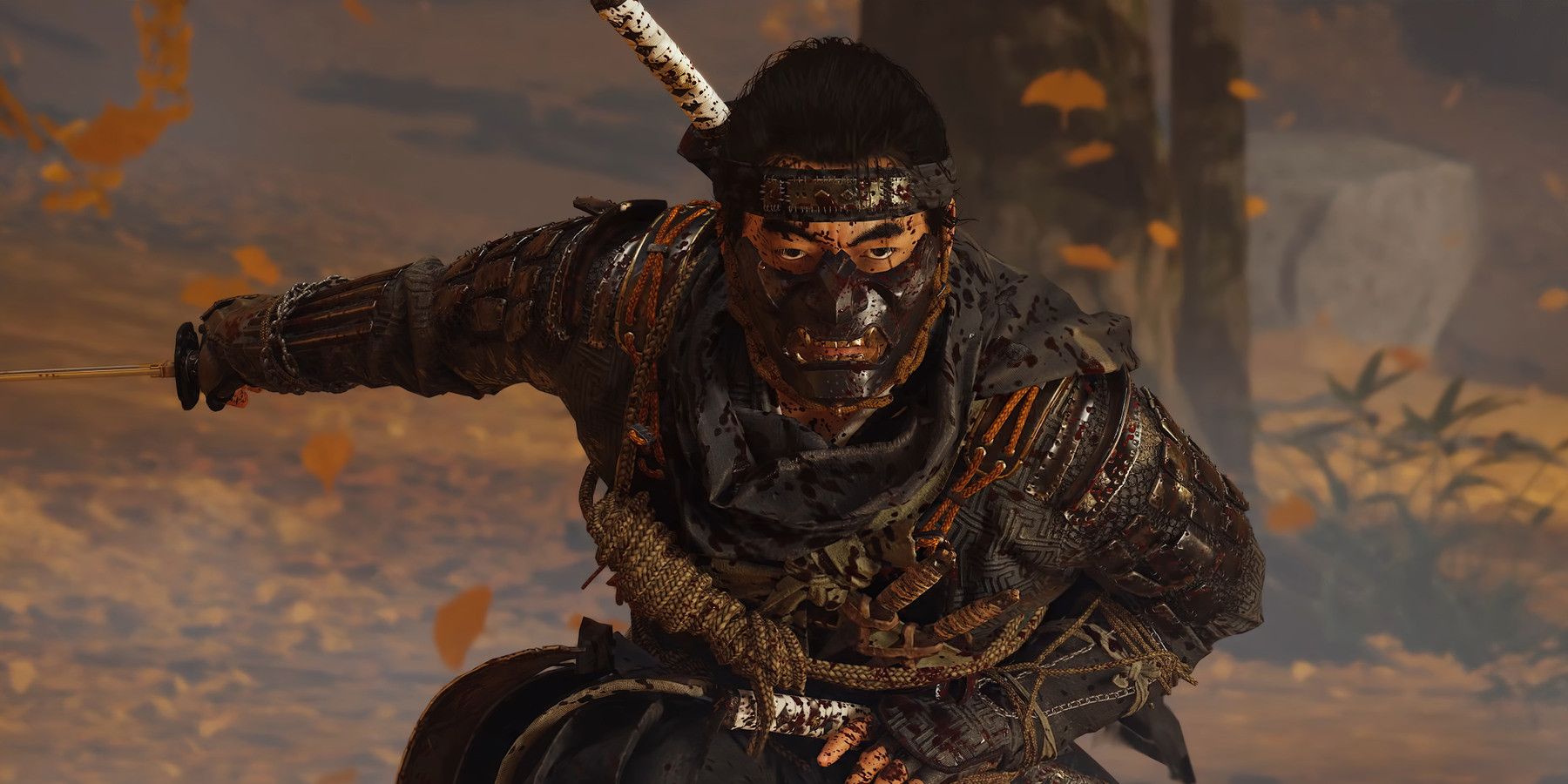
You knew this was coming, so may as well talk about it first. Naturally, people can’t talk about Rise of the Rōnin without talking about Ghost of Tsushima, considering their similar themes and settings. However, whilst both games are set in a historical Japan and feature Ronin, there are plenty of differences too. Ghost of Tsushima is a love letter to samurai cinema- particularly the works of the great Akira Kurosawa- even going as far as having a black-and-white option appropriately called “Kurosawa Mode.”
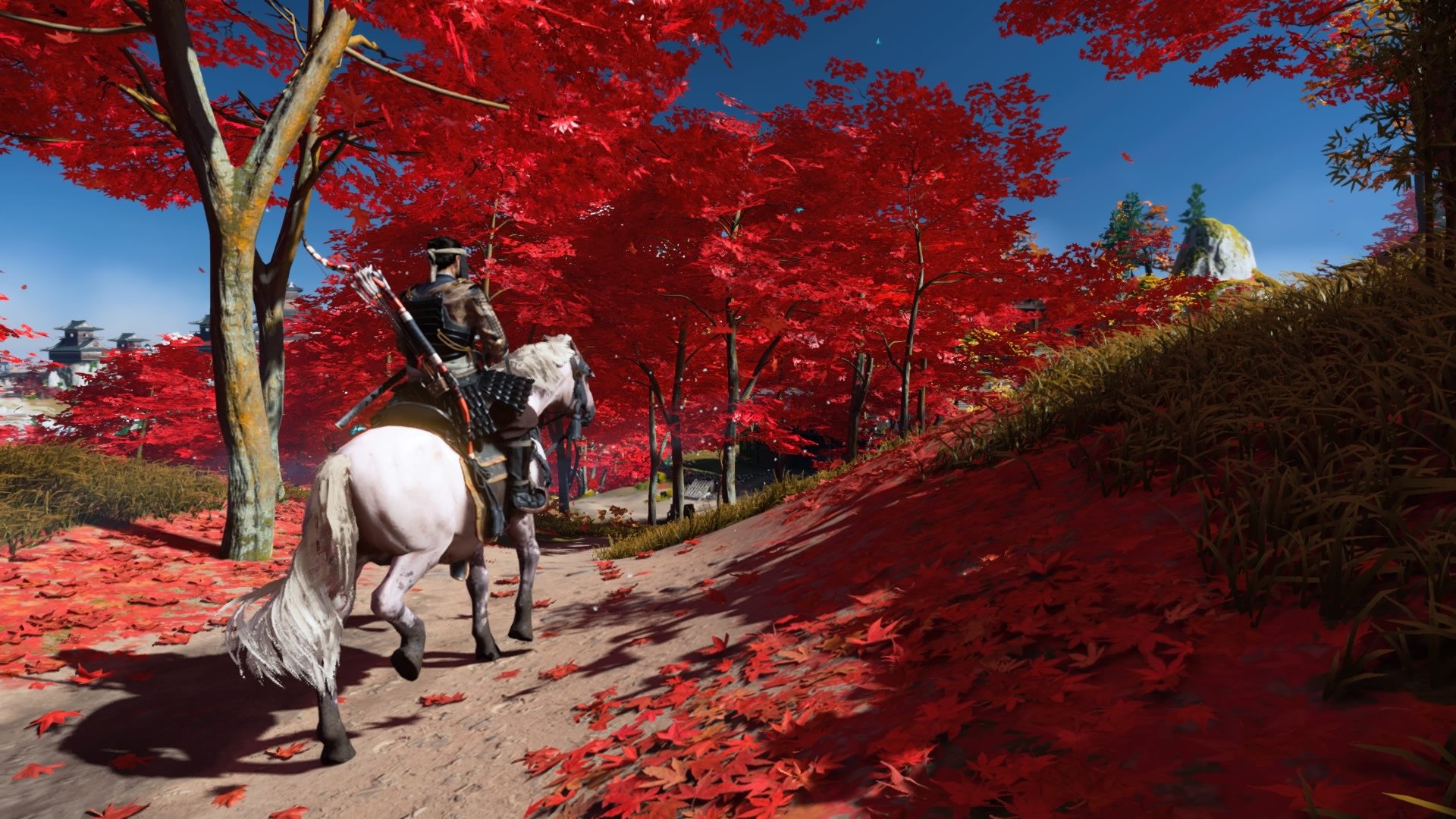
The world of 1274 Tsushima that Sucker Punch passionately crafted is a stunning backdrop to an epic story that’ll often have you riding through on horseback for no reason other than to admire it. Said story follows Jin Sakai, the sole remaining member of his clan as he wrestles with the samurai code of honour when fighting against the Mongols (with an intricate and rewarding combat system) during their first invasion of Japan. The open-world setting offers a wide array of places to see and people to meet, contrasting to the brutalities of the ongoing war and Jin’s role as a combatant within it, as he explores how it is affecting the ordinary lives of everyday peasants. Two thumbs up.
L.A. Noire

Let’s back up a little and look at something different. L.A. Noire was developed by Australia’s Team Bondi, published by Rockstar and set in 1947 Los Angeles. Even with the Rockstar stamp on it, this is a game that is wildly overlooked when it comes to their ever-popular library of open-world titles. L.A. Noire was and is a different kind of game to almost anything out there. Whilst detective games are certainly not new and mystery, clue-hunting games aren’t either, the sheer scope and presentation of this one set it apart and for Rockstar (and most others), it wasn’t the typical guns-blazing former-criminal-protagonist-get-into-car-chases-and-blow-stuff-up adventures one might have in Grand Theft Auto.
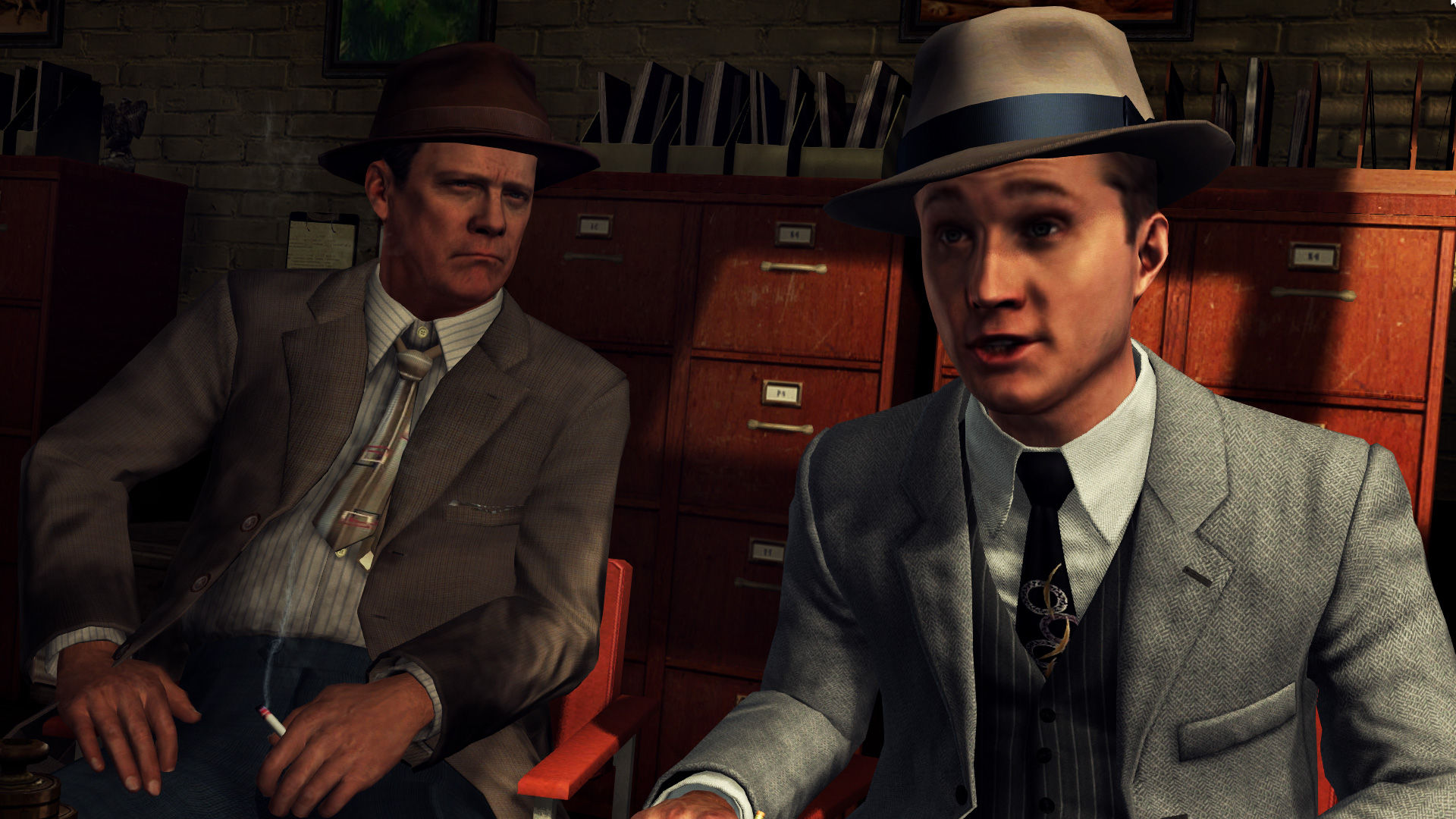
This time, you’re on the right side of the law catching the types of criminals that you might usually play as. As a detective, a big part of the job is interrogating suspects and deciding whether you think they’re lying or telling the truth and to aid this, Team Bondi's sister company Depth Analysis developed a motion capture technology called MotionScan. MotionScan records actors with 32 surrounding cameras to capture facial expressions from every angle, resulting in a realistic recreation of the human face (a few you’ll recognise). That, paired with the exploring of crime scenes and suspect and victim houses for leads, working your way up the detective ladder, the variety of cases, and how truly engrossing it all is with Rockstar’s signature attention to detail makes L.A. Noire an utterly unique experience.
Assassin’s Creed
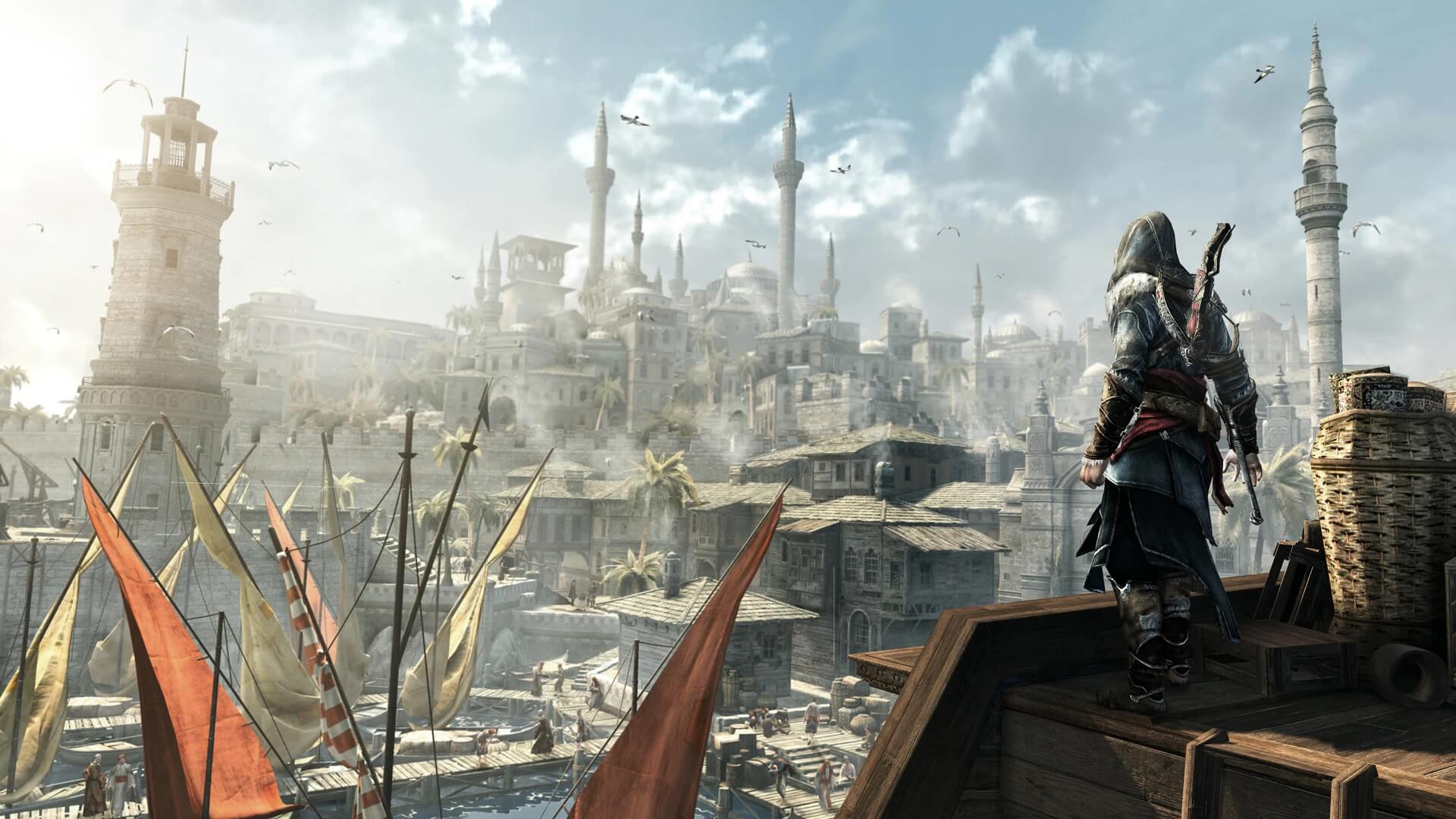
I couldn’t possibly single out just one of the titles from Ubisoft’s multi-game series, so we’ll talk about it as a whole. With thirteen main entries (just main entries) in the historical series, Assassin’s Creed is one of the most successful and beloved video game series of all time. Coming out with its first entry in 2007 to a lukewarm reception, it wasn’t until its second entry that the series really took off. Coming off of the success of Ubisoft’s previous swashbuckling franchise Prince of Persia, AC retains a lot of the same elements, but is more grounded, with the fantastical and magical of them minimised. What it kept from its big brother though was the fluid running, jumping, and wall-running (though not quite as spectacularly), and pairing that with an open-world setting equals *chef’s kiss*.

With its near-two-decade-long run and seeing the Order of Assassins during the First Crusade, the Renaissance, the Golden Age of Piracy, the Victorian Era, Ancient Egypt, Ancient Greece, the Viking expansion and more, Assassin’s Creed has been teaching us more about the events, places and people of our world’s vast past than history class ever did! Running across the rooftops of Victorian London, raiding pirate ships and leaping down onto your unsuspecting virtual victims means history has never been so much fun! Of course, there is the complex narrative that ties all of its protagonists and periods together along with just as complex a narrative (for the first few games at least) set in the modern day, AC is a goldmine for any video game-loving history buff.
Red Dead Redemption
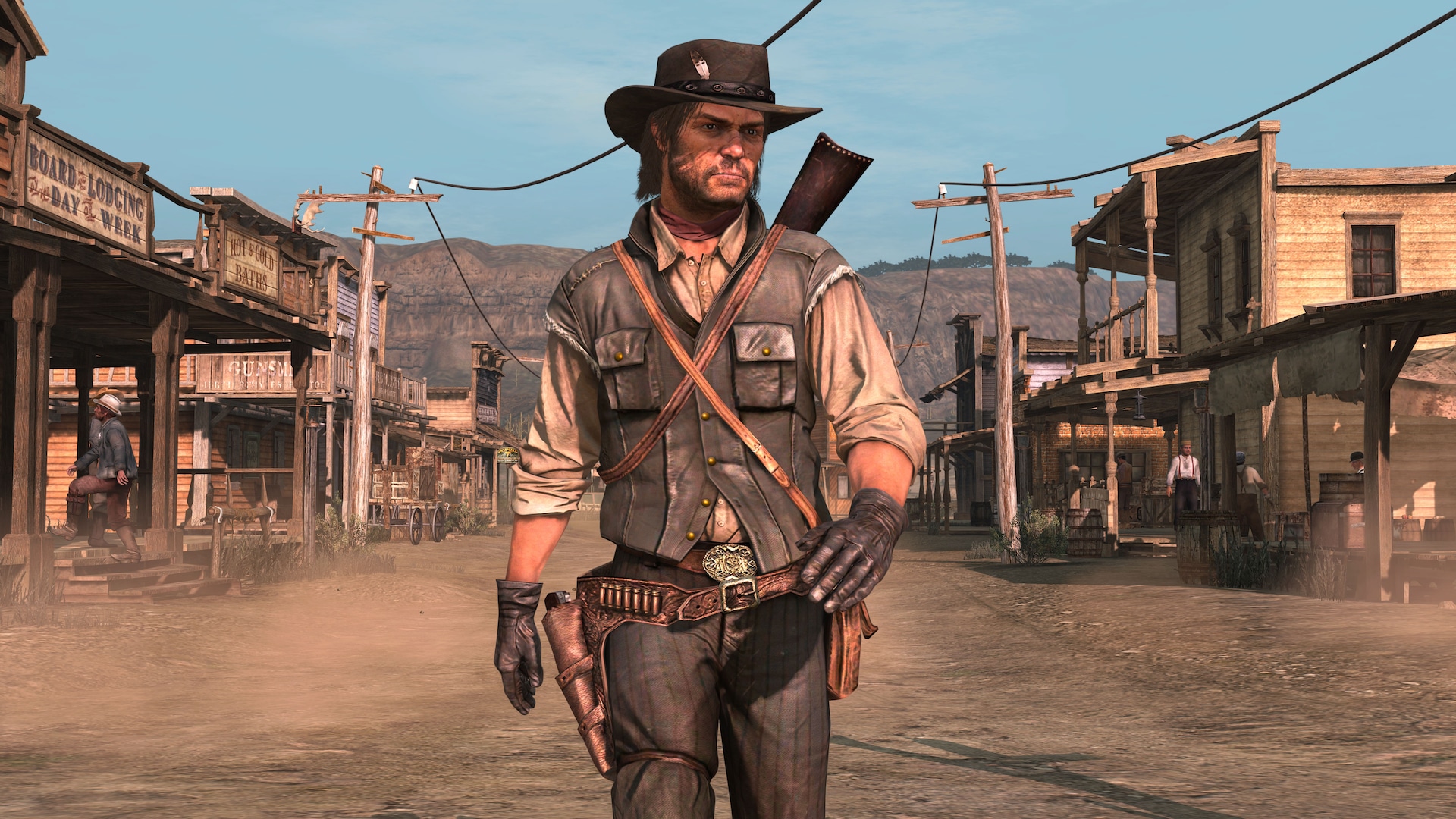
Going back to Rockstar, the Red Dead series had its start in 2004 with Red Dead Revolver, which received average reviews. It was then revived six years later with Red Dead Redemption, which gave Rockstar its biggest hit outside of open-world king Grand Theft Auto. It was then followed another eight years later with Red Dead Redemption 2. With its similar themes, style of gameplay and obvious overlapping mechanics, it would be easy to label RDR as simply “GTA in the Wild West”, but it’s much more than that. Whilst GTA is a satirical representation of our world, culture and events, RDR is a much more serious reflection of the old West’s harsh realities- presenting a more grounded and poignant story about betrayal, revenge, and acceptance.
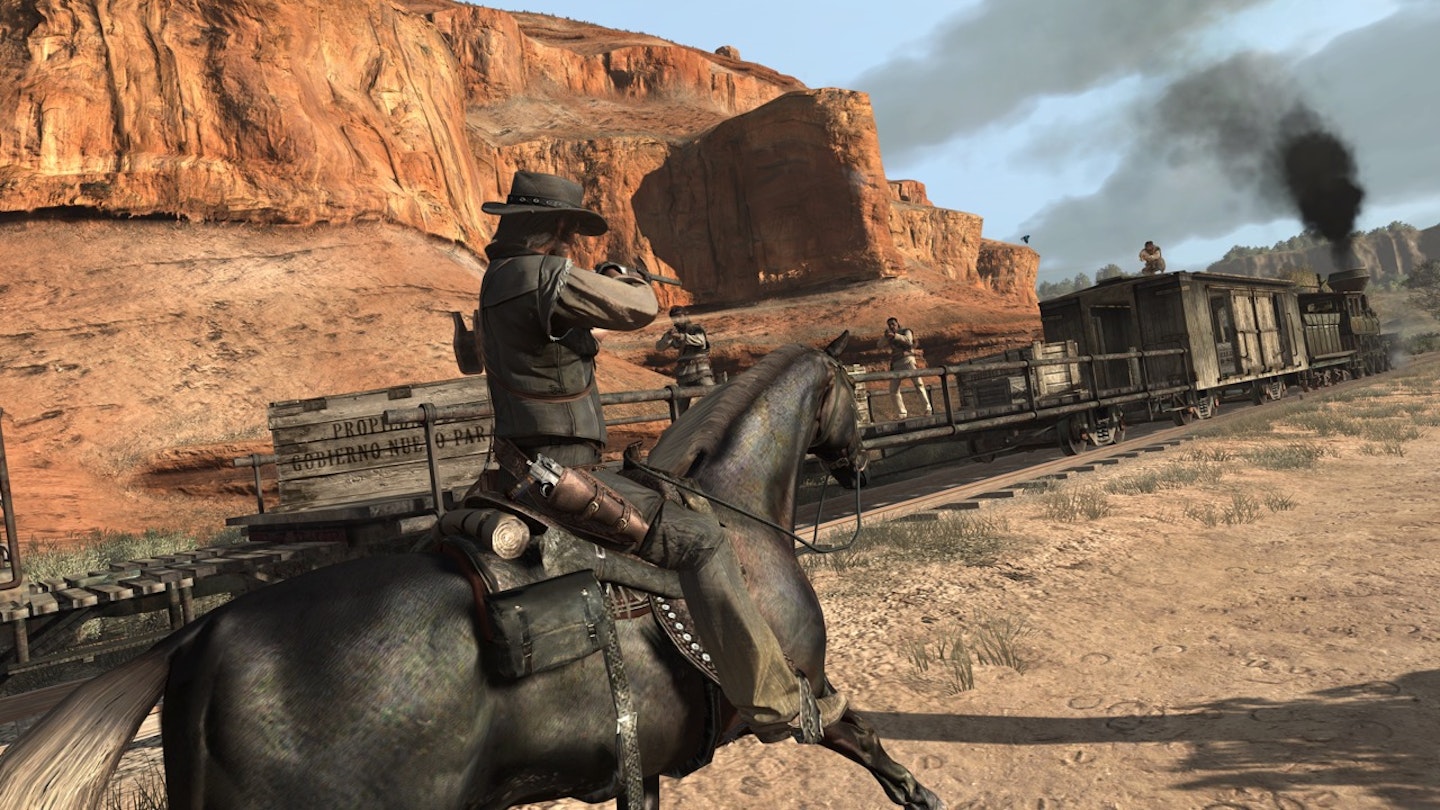
Just like GTA though, the world is rich, vast and filled with interesting goings-on and characters each with their own unique place in the ever-unfolding events. Long after the main narrative has concluded, the living and breathing society that inhabits the game’s universe presents never-ending opportunities to expand its story. With 3 games (and one standalone expansion), the Red Dead series takes over the gaming world whenever there is the slightest hint of news, and deservedly so.
Kingdom Come: Deliverance

If historical accuracy is something you’re after, then you won’t have to look much further than Kingdom Come: Deliverance. It is set in 1403 in the medieval kingdom of Bohemia, which was an Imperial State of the Holy Roman Empire, during the reign of King Wenceslaus IV. After Cuman mercenaries raid the village of Skalitz, the player resumes control of Henry, one of the survivours, who pursues justice for his murdered family and joins other efforts along the way. Games taking place in historical settings-just like any form of fiction- will take their fair share of liberties and have their fair share of historical inaccuracies, but historians have commended Kingdom.
Created with assistance from historians and architects to feature period-accurate clothing, weapons, combat techniques and architecture, it is rather ambitious for the debut project of Warhorse Studios. Such an attempt at realism has actually been a point of criticism for some, with the feeling that the need to make sure that Henry is eating, drinking, sleeping and all that other boring stuff we have to do in real life to make sure that we don’t die- takes away from the fun. Don’t wait too long before eating though because in-game food will spoil over time. Your clothes will periodically need repairing too. As you can tell, it’s a game heavy on RPG elements but it’s not all doom, gloom and seriousness though. Kingdom certainly has its humour, most notably in its stat boosts, acquired by having “manly odor” or visiting a brothel, and saving the game by consuming the finest of medieval alcoholic beverages (the crappy ones work too). It’ll naturally be compared to other medievally set games such as the Elder Scrolls series and whilst it might not be as refined or accomplished as those, Kingdom does push in a direction that few other games of its scale do.






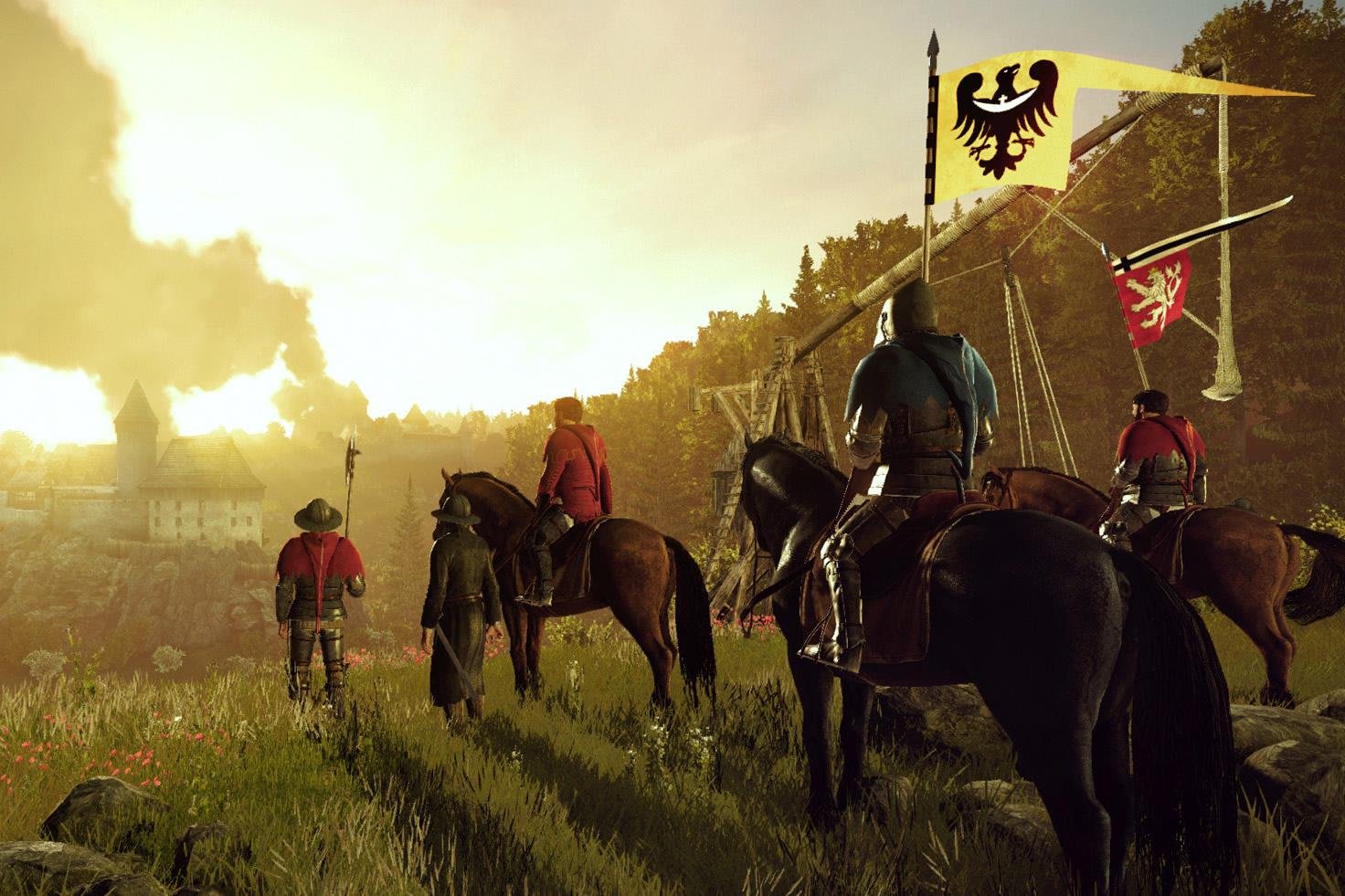
Leave a comment